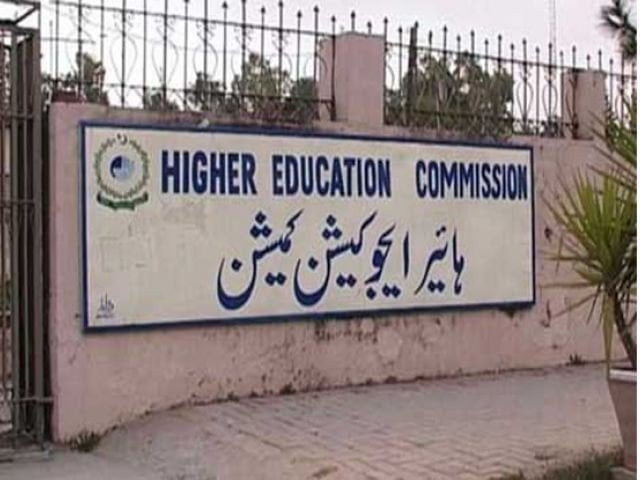HEC opposes admission of pre-med students in engineering varsities
Expresses concern over Pakistan Engineering Council’s decision

The Higher Education Commission (HEC) has opposed the decision of Pakistan Engineering Council (PEC) allowing pre-medical students to take admission in engineering universities.
According to HEC Chairman Dr Mukhtar Ahmed, the council's decision is unclear and raises questions about the education policy under which pre-medical students are being declared eligible for admission in the engineering universities.
Dr Ahmed expressed his concerns in a conversation with The Express Tribune, stating that the HEC was not taken into confidence regarding this decision. He emphasised that the procedure for changing this policy should be fully explained and clarified.
Dr Mukhtar Ahmed expressed surprise over the PEC's decision. He questioned the rationale behind changing the policy, suggesting that it was solely driven by low admissions in engineering universities. "No one becomes an expert in maths in eight weeks."
He also argued that if options are being opened up for pre-medical students, then other fields like information technology should also be considered.
The HEC chairman reiterated that his commission was not consulted about this decision and plans to meet relevant stakeholders and the vice-chancellor on Thursday to understand the logic behind it.
NED University VC Dr Sarosh Lodi expressed strong opposition to the Pakistan Engineering Council's (PEC) decision to allow pre-medical students to pursue engineering courses.
Talking to The Express Tribune, he stated that pre-medical students lack the necessary foundation in subjects like calculus, which is crucial for engineering. He believes that eight weeks of condensed courses are insufficient to bridge this gap.
Pakistan Engineering Council (PEC) Chairman Engineer Najeeb Haroon explained that the council has permitted FSc pass students of pre-medical subjects to take admission to the BS Engineering programme. This decision was made in response to a significant decrease in admissions in the engineering sector. To be eligible for admission to the engineering programme, pre-medical students must first complete an eight-week condensed programme to make up for curriculum deficiencies such as mathematics.
Haroon explained that the council has taken the decision to allow pre-medical students to pursue engineering due to a significant decline in engineering admissions.
Currently, only 30% of the capacity in engineering universities is being utilised, and some universities have even closed their engineering disciplines due to the lack of students.
During a meeting with the VC of engineering university in Khyber Pakhtunkhwa, it was disclosed that while 40,000 students have been admitted to pre-medical programmes, only 6,000 have been admitted to engineering programmes. Private universities, in particular, are facing a significant decline in enrollment.
Haroon also pointed out the involvement of engineering in medicine, mentioning the crucial role of machines and equipment in hospitals and the significance of engineering in dentistry, bionics and prosthetics.
Haroon stressed that this decision was made after consulting with 17 VCs of the country.



















COMMENTS
Comments are moderated and generally will be posted if they are on-topic and not abusive.
For more information, please see our Comments FAQ